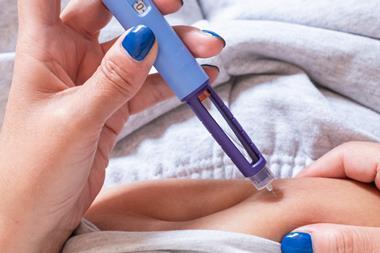The industry’s worst fears about the potential misuse of the FSA’s Nutrient Profiling Model have been realised.
Two years after The Grocer warned in our Weigh It Up! campaign that Ofcom’s use of the NPM was the thin end of the wedge, it has emerged that the Welsh Assembly is using the model to justify banning what it terms ‘unhealthy food’ from vending machines in hospitals.
The FDF has called for an urgent meeting with Edwina Hart, Minister for Health and Social Services, to discuss the issue . “We have no problem with the Welsh Assembly developing a food policy,” said FDF communications director Julian Hunt. “But we would be very disappointed if we were not given a chance to have our say.”
The FSA introduced the controversial NPM in 2005 to assist Ofcom in restricting the television advertising of high fat, salt and sugar products to children.
Ever since, food companies have feared the model would be used in an inappropriate context. “From day one this has been a concern,” said Hunt. “Once the model was out there, it was impossible to keep it ring-fenced or prevent it from being used to endorse all sorts of schemes.”
Even the FSA had advised the Welsh Assembly not to employ the NPM in this way, said Hunt. “It is just not appropriate,” he added. “Hospitals have both children and adult patients, all with very different conditions and nutritional needs, not to mention staff and visitors.”
The Welsh Assembly has acknowledged that the NPM was not created for this purpose in its guidance on implementing the vending machine charter.
“Even though the model was devised for [assisting Ofcom], Welsh Assembly Government health professionals believe it is a suitable tool for deciding what constitutes a healthy food/drink for the purposes of hospital vending.”
The Grocer launched Weigh It Up! in 2007 to call for a reform of the NPM, which still uses a 100g measure to class everyday products as unhealthy.
Sign in to comment on this article
Not logged in before? Register for FREE guest access today.
You will be able to:
- Read more stories
- Receive daily newsletters
- Comment on stories
Advert



















No comments yet